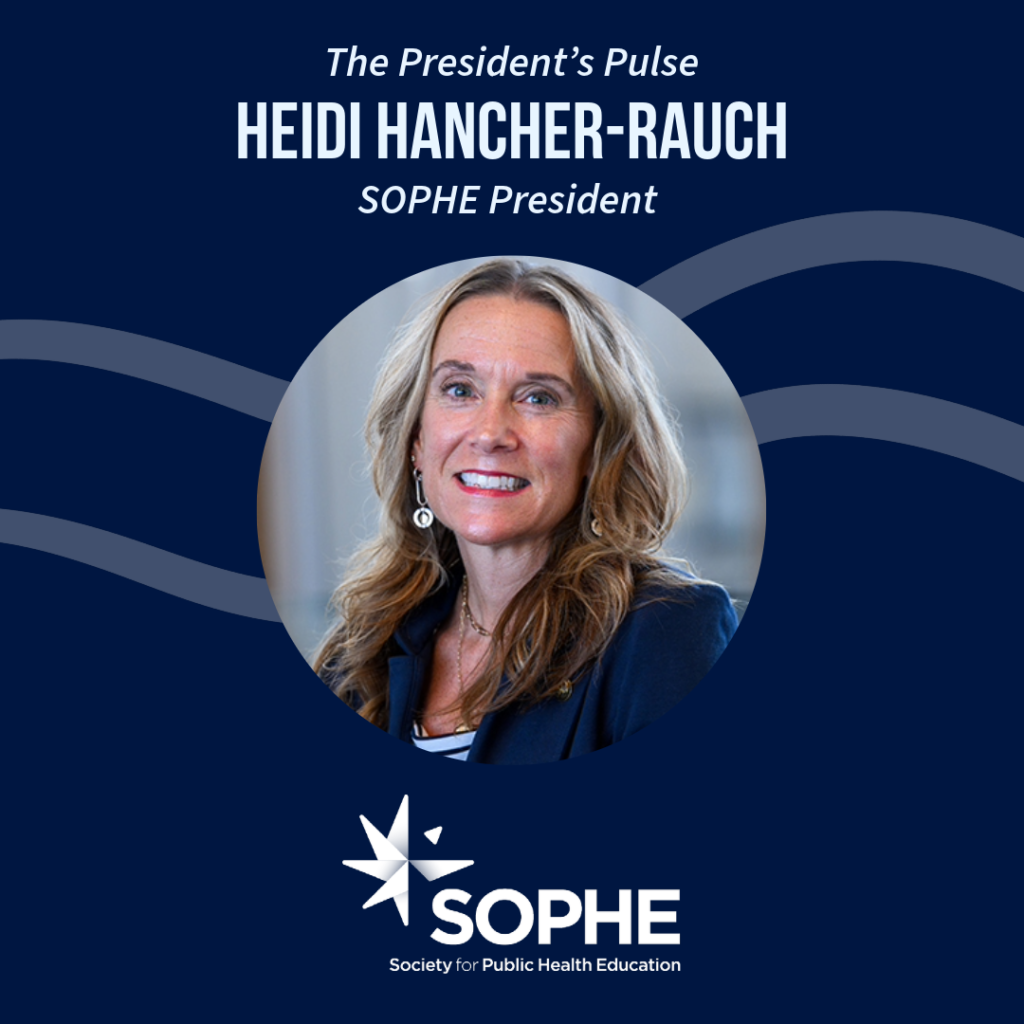Update from SOPHE President Heidi Hancher-Rauch

As I considered what message to share this month, I asked my 18-year-old son what he believes is weighing most heavily on the minds of young people today. His thoughtful response caught me off guard: “The world isn’t the great place I thought it was, but individual people aren’t always as bad as we think either.”

He was expressing his disillusionment with the division, conflict, and lack of compassion he sees in the world, but also pointing to a glimmer of hope—that individuals can still surprise us with decency and kindness. His words reminded me how easily we fall into an “us versus them” mentality, making assumptions about people rather than seeking connection and common ground.
You might ask, what does this have to do with public health and health education? In fact, it ties directly into recent insights I’ve gained while listening to the Why Should I Trust You? podcast, which features candid conversations between public health professionals and MAHA community leaders.
One of the most striking takeaways for me was how many community members feel unheard. They believe public health experts have spoken at them, rather than with them, especially during the COVID-19 pandemic. We often default to communicating facts quickly and concisely, because that’s how we’ve been trained to communicate during a crisis. But in doing so, we may have neglected the most important first step: listening. Many people feel left out of conversations about their own and their families’ health and well-being and regaining their trust will require a fundamental shift in how we engage.
The second key lesson for me was about empathy. I’ll admit, during the height of COVID I often felt frustrated: “I’ve read the science, I’m the public health professional, why won’t you just listen?” But now I see that empathy must come first. Community members want to know that we understand their fears and values before they’re ready to hear our recommendations. My husband, an educator, often reminds me about students: “They need to know you care before they care what you know.” The same holds true in public health. They need to believe we are truly striving for the same goals and that we care about THEM before they will believe what we are saying.
As we move forward, maybe the best place to start is with humility and curiosity. Let’s listen to the concerns of those who don’t yet trust us. Let’s understand where they’re coming from before offering solutions. And let’s answer difficult questions (yes, even those rooted in misinformation) with compassion, recognizing that fear and frustration, not just ignorance, often drives the search for alternative explanations.
Here’s to continuing the hard but essential work of rebuilding trust and fostering connection. We can do this. Together.



